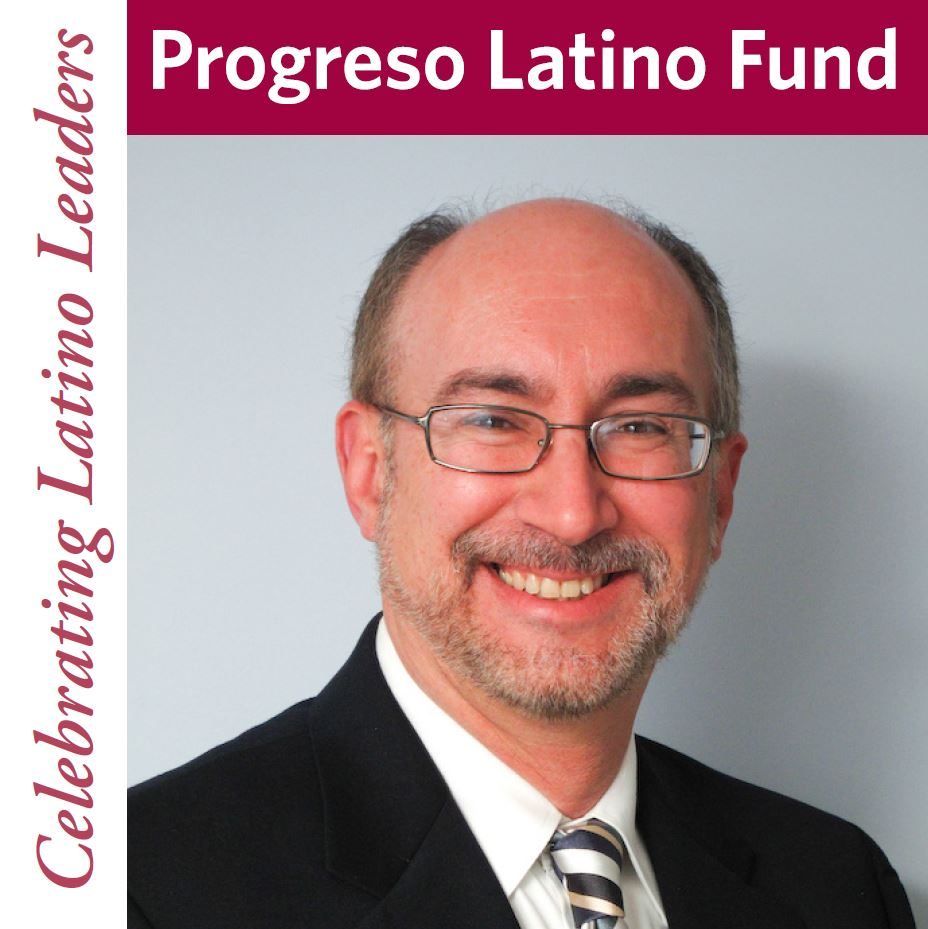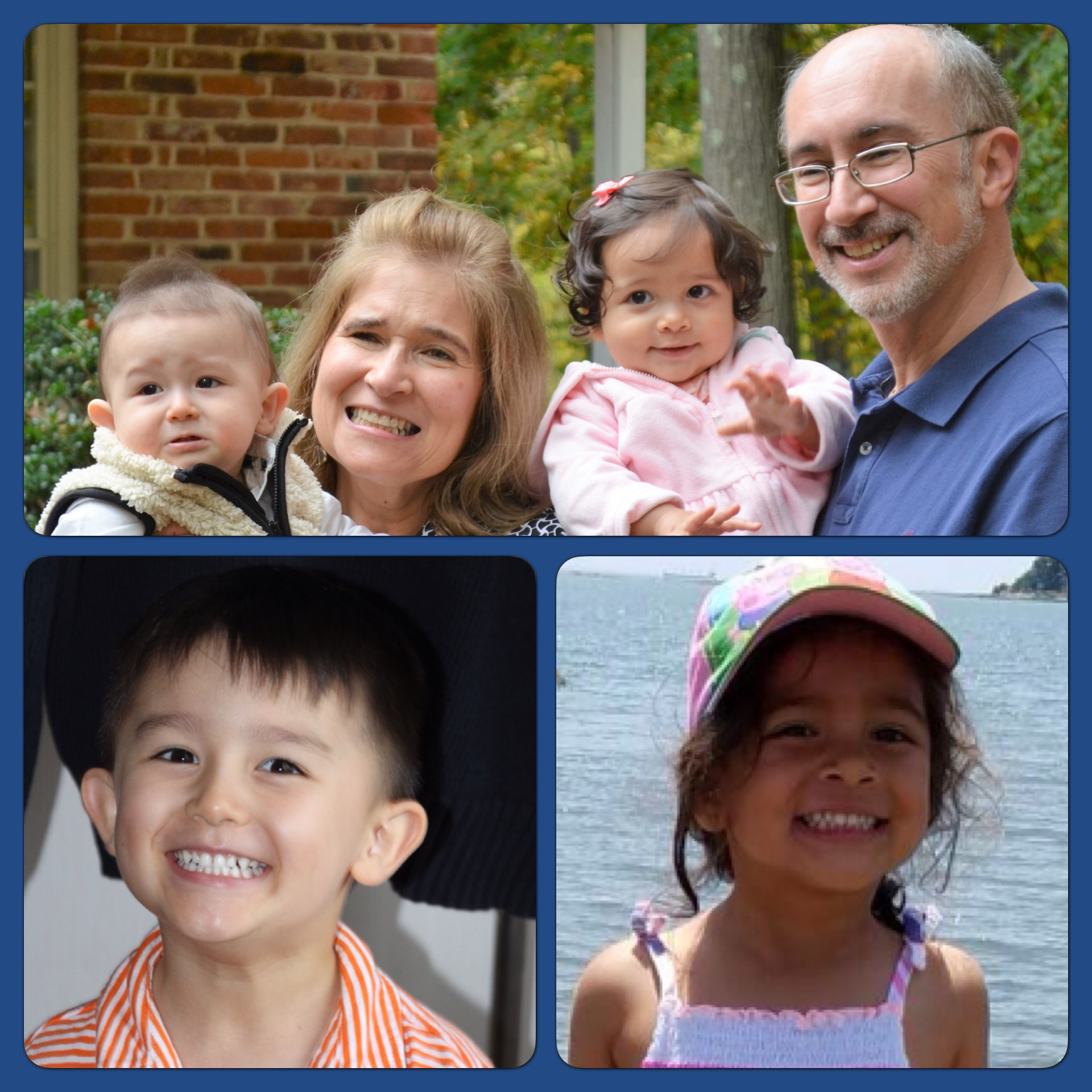Celebrating Latino Leaders: Michael Negrón
“Networks are key. But we need to ask ourselves, how well are we promoting and publicizing the things we have, and leveraging the resources and opportunities for Latinos in our community?”

Michael Negrón
President & CEO, NEGRON Consulting
Hometown: New York City, New York
Michael Negrón’s life, both personally and professionally, contains a collection of unlikely outcomes.
Born and raised in the Bronx, Michael is the eldest of three children. His father is from the town of Corozal, Puerto Rico; his mother is a Holocaust survivor, a German Jew born in Berlin, whose family moved to Portugal when she was five. She arrived in the United States on an American Red Cross relief boat to live with a foster family in New Jersey, just about the same time his father’s family was immigrating to New York City. They were both 13 years old. Years later, they would meet, fall in love, marry and start a family.
Michael attended New York City public schools, including Bronx High School of Science, one of the most recognized specialized schools in the country. He graduated a year early, just before turning 17, and stayed in New York City to attend Baruch College, where he earned his bachelor’s in Accounting. After that, he earned an MBA in International Finance at St. John’s University while working at his first job as an accountant at Steinway Pianos, a division of CBS, in New York.
He would spend more than twenty years in corporate finance and manufacturing operations before making a dramatic transition that would lead to the creation of his own consulting firm, strengthening companies and nonprofits by focusing on human capital over financial goals.
“Throughout my career I was often told I was a different kind of finance guy. People would say, ‘You don’t treat us as overhead or an expense, you treat us as individuals, as an investment, as an asset.’”
Michael’s consulting work has included projects with well-known corporations such as Travelers, Aetna, Pitney Bowes and Priceline.com in Connecticut, and Verizon, P&G, Johnson & Johnson and British Petroleum, as well as large foundations and international philanthropic organizations.
He says it was while leading a business process review for Priceline.com that Michael’s transformation from “just a finance guy” into an organizational development professional began.
“I was supposed to be there consulting for two or three months, serving as a bridge between IT and finance. But I left a research paper for the CIO in his inbox that I had put together on my own, reviewing best practices in travel and internet, and he loved it!”
More than 15 years later, he has consulted for Priceline.com on international expansion, leadership development workshops and executive coaching, and he worked with Verizon and P&G for over five years conducting leadership summits and coaching for high potential multicultural talent.
Making a Personal Investment
While Michael was building his own consulting network, he had the opportunity to work with a professional colleague performing executive searches for companies. He jumped at the chance to find executives within his Latino network who were qualified but might be overlooked or not even apply.
“I would add to every job description the ‘bilingual preferred’ language, even if it wasn’t required, because I wanted to find that new talent, opening up the playing field to people who are not the majority population.”
Years later, an individual who Michael had placed in one of those searches called him up with an opportunity. A major diversity firm in Washington, D.C. was looking for Latino executives who had navigated the corporate system to join as consultants.
The work required training and certification in a number of fields. Today, Michael is accredited in emotional competence inventory from the Hay Group, resilience factors inventory from Adaptiv Learning at the University of Pennsylvania, in addition to EI & Diversity training, executive transitions and succession planning. And, he has conducted nearly one thousand coaching sessions within varied industries across the country.
“It’s like the instructions given when you are on an airplane: ‘In case of emergency, apply the oxygen mask to yourself before helping others.’ You have to take care of yourself first.”
Michael says it is often the mentality among professionals, especially of minority groups, to keep their head down and work hard and eventually they will be recognized for their work. But, that’s not always the case.
“You have to let people know that you are interested in an opportunity. You have to be able to share what you know, or what you have accomplished. I hear people say all the time that they don’t want to be boastful or be considered ‘one of those people.’”
That’s why Michael says it is so important to have organizations like Progreso Latino Fund (PLF), which he has previously served as a member of the Advisory Committee and more recently consulted for, and the National Society of Hispanic MBAs (NSHMBA), of which he is a lifetime executive member and, in 2005, served as interim CEO during a significant transitional phase.
“Networks are key. But we need to ask ourselves, how well are we promoting and publicizing the things we have, and leveraging the resources and opportunities for Latinos in our community?”
The Best Job in the World
Michael and his wife Edita live in Guilford, and recently celebrated 38 years of marriage. Speaking of unlikely outcomes, the two met at a 4th of July party in New York City, two weeks before Edita was to move to Florida. Michael went to visit her in Florida, and they were married about six month later.
 |
They have two sons, one who is currently overseeing the International Speakers Group for NEGRON Consulting from Japan, where he and his family live. The other son and his family moved from New York City to Guilford, living with Michael and Edita for a short time while getting settled, and recently bought their first home in Guilford.
“Being ‘un abuelo or ojiisan’ (grandpa in Spanish and Japanese), is probably the best job in the world.”
Michael says Edita deserves so much credit for who he is today.
“She models behavior, rather than tell people what they should or shouldn’t do. She has done the hard work spiritually, to help understand why we are here. My sons, in particular, have benefitted immensely from that, as I have.”
Michael also finds time to give back, having served on the Board of Directors for United Way, Casa Otoñal, Rotary International and NextGenLeaders (PeaceJam Foundation affiliate), and served for many years as a volunteer photographer for the Connecticut Food Bank’s annual Walk Against Hunger. From 2010 through 2012, he served as chair of the Connecticut Chapter Advisory Council for the NSHMBA, a position that didn’t exist until then.
Michael is inspired and energized by the potential he sees in the next generation of Latino leaders. He says it’s important to always be on the lookout for young and fresh ideas. And it’s equally important to provide those individuals with the support they need and the opportunity to lead, even if they fail the first time. Serving on volunteer boards can provide that opportunity.
“I think there needs to be more acknowledgement of the issues that other Latino backgrounds are experiencing. There’s an opportunity for some bridge building, as we are all at different points in the evolution of being here in the U.S., as Latinos, as Americans. It’s also generational, it’s not just cultural. But I think the most important thing is that we have to ask for help and how we can help.”
And, the importance of hard work needs to be stressed to that younger generation, without sounding too preachy. It’s only with a considerable amount of hard work, and good fortune and blessings, that Michael and his father José are able to say there is a Negrón living in Tokyo, Japan.
“When you are not the majority, you have to do double the work. You have to join the Chamber of Commerce, and the Hispanic Chamber of Commerce, or the African American Chamber of Commerce, or a Women’s Group. We can complain about it, or we can look at it as an opportunity to broaden our network and have a voice at both tables…which hopefully someday will become one table.”
